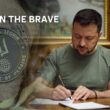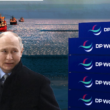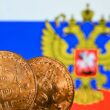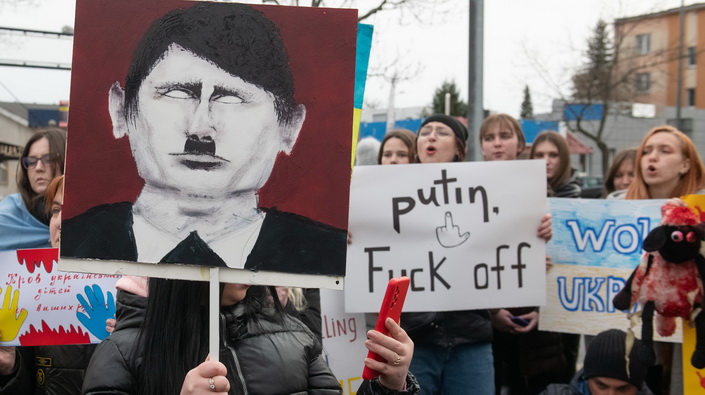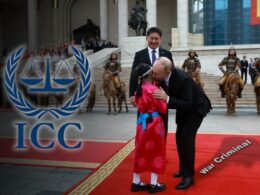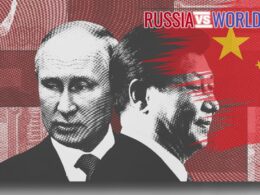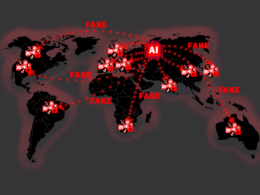Even in the ninth year of Russian aggression against Ukraine, statements about the need to save the face of the Russian president have not disappeared.
The President of the United States recently joined the camp of sympathetic Western figures, expressing concern that the leader of the aggressor state has no way out of the war. Dozens of articles regularly appear in the Western media about the importance of creating the right conditions for a “victorious retreat” of the Russian leader.
Meanwhile, the very attempts to please the Kremlin, and the policy of dialogue have repeatedly led to the fact that the aggressive appetites of the Russian leader only grew, and the arrogance in conducting special operations abroad has become increasingly widespread.
Let’s analyze which figures and why continue to call for the salvation of the face of those who have not cared about this salvation so far, as well as what this approach may lead to in the future.
Saving the faceless: how it all began
The face of the Russian president in the West started being saved a long time ago. For example, in July 2014, Angus Roxboro, a British journalist and expert on Kremlin intrigue, named his article for The Guardian “Let Putin save face.”
The material appeared on the fourth day after the Russians shot down a Malaysia Airlines passenger plane. The author did not deny the fact that it was Putin who was responsible for the catastrophe, but recommendations for responding to Russia’s impunity were made in the style of the Russians’ favorite “everything is not so clear.”
“The West must put pressure on Putin, but that must be the right pressure. In three years of working closely with the Kremlin, I have come to a useful conclusion: Putin hates being lectured and tends to react sharply to any criticism. There is no example, when he would listen to the critics, doing what the West demanded. But there are many cases when he did the opposite, “- the author shares his observations.
He advises: “Putin will probably be president for the next ten years, and we cannot afford a decade of the Cold War. It is time to swallow and enter into a dialogue with the region’s main player to help ensure Ukraine’s integrity – and peace in Europe. “
The author represented a large camp of Western figures in both the governmental and non-governmental sectors who sought to bring Russia back to the negotiating table and resolve all issues peacefully. It is clear that Angus Roxboro did not influence the dialogue trend in the West, he was only one of its representatives – Western governments have been trying to implement a policy of involving Russia in dialogue and cooperation for a long time.
Neither the suppression of freedoms in Russia itself, nor aggression against neighboring countries, nor even special operations in Western countries could influence this policy. Restraint and dialogue have become fundamental principles in NATO’s policy towards Russia since the 2014 aggression against Ukraine.
The West has always been reluctant to call for sanctions against Moscow.
It is worth mentioning that for the first time the United States threatened sanctions after the Russian aggression against Georgia in 2008, but just a few months later, the new Barack Obama administration began a policy of “reset” with Russia.
The beginning of the occupation of Crimea was accompanied by appeals from key partners of Ukraine “not to succumb to provocations.”
For some reason, Western politicians were convinced that if we did not repeat the Georgian experience and did not start firing back, everything could be resolved through diplomacy. The Ukrainian government deserves praise for “refusing to succumb to Russian provocations,” British Foreign Secretary William Hague said in March 2014.
As much as the West tried to resolve all disputes with Russia through diplomacy, it only got worse.
Every step towards an understanding on the part of the West was exposed to a new act of aggression by Moscow.
The occupation of Crimea, the military aggression in the Donbas, Russia’s provocative actions to delay the resolution of the conflict (shelling; passport issuance; blocking the departure of citizens to Ukraine, etc.) – all this has not gone unnoticed in the West.
In the end, the EU and the US resorted to delayed and limited sanctions, which only led to an undesirable effect. Russia has never believed in sanctions because it believes that the EU and the United States are too willing to cooperate with it, and therefore sanctions, if any, are temporary.
This created a vicious circle of ineffective sanctions: the West was forced to react and impose restrictions when Russia went too far in its actions; Russia continued its aggressive provocations, believing that this time the EU or the United States would not do anything serious.
In eight years of dialogue, Russia has effectively developed sanctions immunity: the Kremlin has stopped taking sanctions seriously. Russia did not believe that the West could block Nord Stream 2, disconnect from SWIFT, or impose sanctions on Putin’s family.
Because the West still wanted to reach an agreement through negotiations, so as not to close the way for retreat and “save Putin’s face.” However, the full-scale war against Ukraine has dotted the “i”s and crossed the “t”s: the West has shown that it can be decisive; Once again, the Kremlin has miscalculated the weakness and disunity of Western nations.
However, the West has not learned a key lesson as it continues to reflect on how to save Putin’s face.
At the same time, the more the West made efforts to save his face, the more the Russian leader made mistakes that provoked further, so to speak, “loss of face.”
Occupying part of Ukraine in 2014, he lost face among Ukrainians. Having started a large-scale war in 2022, he lost it throughout the democratic world.
Saving the faceless is what the latest futile efforts to establish a dialogue with Putin look like.
The struggle for peace
A new trend – few Western politicians today speak publicly about the need to save the face of the Russian president. However, the lack of public statements does not mean that the old attempts to help Putin emerge victorious have stopped.
The goal of Western politicians is clear: they explain the need for dialogue with the Russian president with the only motive – to avoid worse scenarios (food crisis, protracted war, use of weapons of mass destruction, etc.).
Late last week, German Chancellor Olaf Scholz called the Russian president again, the first telephone conversation in six weeks. The previous one took place on March 30; after the news of Russian crimes in Bucha, telephone diplomacy was paused.
French President Emmanuel Macron resumed telephone dialogue after a month-long break on May 3.
A few days earlier, a statement was made by US leader Joseph Biden, in which he expressed his concern that the Russian president “now has no way out.” At the end of last week, the first telephone conversation between the defense ministers of Russia and the United States took place since the beginning of the war.
We are therefore witnessing a new phase of peacekeeping efforts.
Vladimir Zelensky’s statement that the French president offered Ukraine to make significant concessions in order to persuade Russia to end the war and “save the face of President Putin” was sensational.
The allegations have been denied in Paris, but it is clear that the Ukrainian leadership is, to put it mildly, concerned about the appeasement of the Kremlin.
Ukraine has always preferred negotiations and, by the way, has repeatedly demonstrated a willingness to compromise. Certain concessions in the past were critical – Crimea, Minsk agreements.
Volodymyr Zelensky also began his presidency with a series of compromise decisions – whether it was agreeing to the “Steinmeier formula”, or handing over to Russia one of the key witnesses to the destruction of the Malaysian Boeing, or the unilateral withdrawal of Ukrainian troops in June 2019, or even avoiding words “aggressor” and “occupation”.
On March 29 this year, Ukraine offered its vision of peace with Russia, which was to abandon its course towards NATO.
Russia has had dozens of opportunities to “save face”, but Ukraine’s peace proposals have never been considered sufficient in Moscow.… The whole list of previous concessions should have convinced Western politicians long ago: no matter how much Putin is given presents to save his face, he will not give up his aggressive plans.
Western analysts, diplomats and politicians have had enough time to understand how Russia reacts to the language of diplomacy and dialogue – this is perceived only as a weakness that only encourages the Kremlin to continue aggression.
Obviously, the negotiations play an important role, and they must take place, but they cannot become a kind of conveyor belt and be guided by the principle “what if Putin comes to his senses this time?”
Interlocutors of the Russian leader admit that in recent years it has been quite difficult to talk to him: he constantly reduced everything to historical parallels, to long manipulative teachings about the permissiveness of the West and so on.
Putin’s recent public controversy with the UN secretary general provides insight into what the talks with him look like behind closed doors. So far, there have been no signs that Russia has decided to change its behavior.
If the Kremlin does not signal readiness for dialogue in any way, then Western politicians are unlikely to sacrifice their time.
Ukraine is primarily interested in peace. However, a key mistake that Western partners have sometimes made before is to negotiate with Putin first and then simply tell the Ukrainian side “what Russia wants.”
An even bigger mistake is to reduce everything to the fact that peace depends on Ukraine.
“It is important to note that it is up to Volodymyr Zelensky to decide when to end the war,” wrote Michel Duclot, a French diplomat and former French ambassador to Syria, to the Montaigne Institute.
Is there a way out for Putin?
Everyone loses from the war – it’s obvious, but it’s just as obvious that the one who started it can and should stop it.
Since the beginning of the war, Putin has pursued three strategic goals: to strengthen his power; to establish control over Ukraine; to resume dialogue with Western countries on new terms.
The second and third goals could not be achieved quickly – efforts to achieve them will continue to require time and resources, but the costly prolongation of the war will eventually hit Putin’s fundamental goal – to strengthen and maintain his power.
Putin, who loves historical excursions, should remember well how the protracted US war in Vietnam ended in 1973; Soviet Union – in Afghanistan in 1989; USA – in Afghanistan in 2021… Lost lives, wasted billions of resources – and unfulfilled initial goals.
None of the political leaders who decided to end the protracted wars cared much about saving their faces as victors. The level of internal social and political criticism was so strong that the end of the war was the only scenario for “saving the face.”
Putin relied on the blitzkrieg, because he had to understand that a protracted war was the way to his defeat.
However, it should be acknowledged that at this stage, Putin has enough leverage to save his face, if he is really interested …
Total control over the politics and the media space in his country allows him to pretend to win anything. It would be strange to assume that Putin may be intimidated by domestic criticism if he stops the war: the repressive apparatus is effectively dealing with anti-war voices in Russia, so there is nothing to stop it from silencing militarists even more effectively.
Russian propaganda has found enough arguments to justify the occupation of Crimea, it has managed to whiten the war against Ukraine, no doubt, it will professionally cope with saving the face of Putin, who will stop the war.
The Kremlin has apparently deliberately set vague goals for a “special operation” against Ukraine. In fact, Putin continues to operate in the format of a hybrid war: Russia does not call war a war; does not announce mobilization; shyly speaks of the “situation in Ukraine”, without indicating what was the cause of such a “situation”.
This allows Putin to be flexible in presenting “victory”.
So the West is worried in vain that the field for Putin’s maneuver has narrowed…
Pay attention to the comments of Russians, who mostly support Russia’s war against Ukraine. First, they all repeat the television propaganda stamps, and this proves that what the TV calls a victory, the victim of the television monopoly will repeat.
Secondly, Russian citizens are partly rescued when the question to them is a bit difficult: “I completely trust the president – as he decided, and rightly so.” This phrase was often heard when Russia became involved in the Syrian war; just as often it emerges now.
Yes, the proposed way out of victory through propaganda distortion is manipulation, deception, but it is a logical continuation of the political logic and relevant standards adopted by the Russian elite over the past twenty years.
For now, Putin continues to escalate, demanding pressure on Ukraine, which means one thing: phone calls do more harm to callers, and to the strategic goal of restoring peace.
By saving Putin’s face, Western politicians risk losing their own.
Author: Serhii Solodkyi,
First Deputy Director of the New Europe Center
Source: https://www.eurointegration.com.ua/articles/2022/05/19/7139619/
Translation: https://russiavsworld.org/putins-saviors-whats-wrong-with-the-wests-attempts-to-save-the-face-of-the-aggressor/
